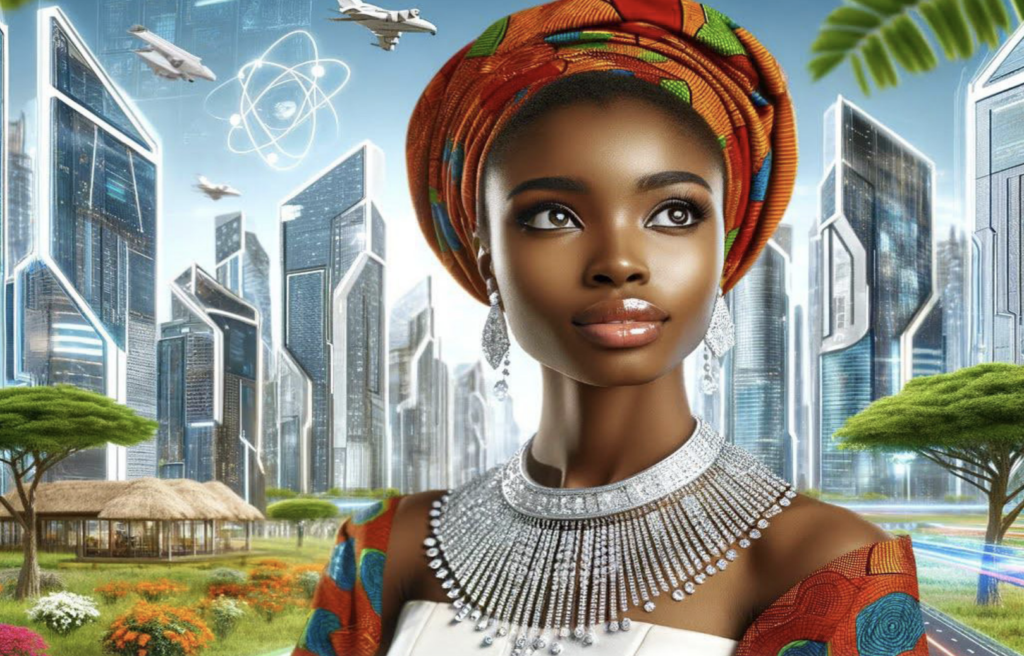By Prof Arun Tiwari
Every society must find solutions to the problems of its people. There is no other way the history of humanity happened. There is no other way it will ever happen in the future. After independence in the late 1940s, two great nations, India and China, failed to grasp this truth, creating immense hardships for their people. China woke up first when its leader Deng Xiaoping called for socialism with Chinese characteristics in 1980, declaring to get rich is glorious.
India struggled for a further three decades before Narendra Modi brought in capitalism with Indian characteristics, providing free rations to 800 million people. The story of African nations is no different. Different nations on the continent have fared differently.
Innovation and invention are obviously two different words, but the confusion about them is widespread and nagging. What the people of one society invent can never become automatically good and beneficial for people living in different conditions and systems. People must locally adapt what is invented to suit their own situation and make it work to their advantage. Take, for example, pharmaceuticals.
Modern medicines, invented in the West, have led to widespread side effects when used by people in Asia and Africa without modifying their effects on the physiology of the local populations. Agriculture is another area where millions of smallholder farmers suffered immense hardships when alien farming systems were imposed upon them by donor agencies.
Interestingly in the last two decades, the convergence of nanotechnology, biotechnology, information technology and cognitive science, collectively called NBIC, has transformed every walk of life. Strong instruments being developed by NBIC have the potential to drastically improve human performance as well as revolutionise economics, science, society, and human evolution.
As the NBIC convergence is understood in depth, the possibility that we may be able to enhance human performance as individuals, communities and nations is seen by visionary people everywhere.
The Indian FinTech revolution is led locally by Indians, mostly through innovation. Chinese companies have taken a lead over their Western counterparts in biotechnology, especially in biosimilar pharmaceuticals. Indian scientist Dr APJ Abdul Kalam, who was later elected as the President of India, published a book in 1996 called India 2020.
In this book, he presented five areas where India had core competence and must focus to become a developed nation – agriculture and food processing, education and healthcare, information and communication technology, infrastructure development, which includes reliable and quality electric power, surface transport and infrastructure for all parts of the country including rural and urban areas, and self-reliance in critical technologies.
What does Africa need to become a continent of abundance by 2050? I worked with Dr Kalam for 33 years, from 1982 till 2015 when he departed. I also coauthored with him six books, including his best-selling autobiography Wings of Fire. I have no doubt that a nation must innovate locally and it must be rooted in the core competence of its own people rather than on borrowed expertise. The advent of generative artificial intelligence (AI) is a big leveller. Those who do not use it are imprudent and those who do are wise.
That is the new rule. And fortunately, there is no second rule. So, keeping aside the lament that Africa is not able to progress because it lacks this and that, it is time to apply AI to all that Africa has and has more than any other nation, or region in the world. And what is that? The resources – sun, water, arable land, hardworking people, and a market of 1.5 billion people who are rising from poverty into the middle class and need new things. These things must not come from the East or the West but should be manufactured locally, using AI. There are systems that would solve the energy problem by self-financing renewable energy, especially solar power.
There are financing mechanisms that would disburse loans to the needy and collect repayments. There are systems where African graduates can work for global companies without ever leaving their communities in a win-win situation with their employers. The biggest problem in Africa is connectivity – physical, financial, and electronic. The mantra of the modern world is “Pay per use.” Global corporations have amassed immense wealth and are holding it in tax haven territories.
Why go to havens when heaven is possible in the form of an abundant Africa? It is time to articulate the intent, embrace AI, and make Africa one economic entity. That would be the innovation of the 21st century, not only for the good of Africa but also for the good of the world and a blessing for humanity. The question is not who will allow it. Rather, it is who will be able to stop it. And mark my words, the answer is no one.
French novelist Victor Hugo wrote in his novel Les Misérables, published in 1862, “No army can stop an idea whose time has come.” During his lifetime, Victor Hugo witnessed several significant events that shaped the course of history – the French Revolution, the rise and fall of Napoleon Bonaparte, and the Industrial Revolution.
These events had a profound impact on his thinking and he turned into a diehard supporter of social justice, democracy, and freedom, which he saw as the constant background for the change to be good and beneficial to the people at large. This is one innovation waiting to happen in Africa in becoming a continent of abundance.
Prof Arun Kumar Tiwari is an Indian Missile Scientist and Author.

